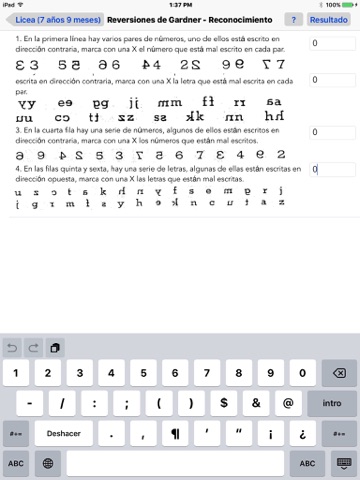
PSR (Perceptual Skills Registry) is an iPhone/iPad app designed to support the storage, calculation and interpretation of the results of visual and motor perceptual skills tests.
The examiner must apply the tests in their original format, record the answers in paper (and later enter the answers in the app) or directly in PSR to obtain the results and performance of the child according to the values given by the author of each test.
PSR shows the tests that can be recorded according to the chronological age of the child. Once the tests answers were entered, PSR allows to see the individual results of each test or to generate a report that includes a table with global results of childs performance, which can be used for suggesting the corresponding visual therapies. The report can be sent as an email message, printed or saved to the Photos app.
Tests included in PSR are divided in four categories: primitive reflexes, visual spatial relation skills, visual analysis skills and visual integration skills.
Tests considered for evaluating primitive reflexes are: moro reflex, asymmetrical tonic neck reflex, symmetrical tonic neck reflex and tonic labyrinthine reflex.
Tests for evaluating spatial relation skills include: angels in the snow, chalkboard circles, Piaget test, Gardner reversals frequency test and primary mental abilities (PMA).
Tests for evaluating visual analysis skills are: test of visual perceptual skills (TVPS), visual organization test (VOT), Southern California sensory integration test (SCSIT), primary mental abilities (PMA), hand movements and Detroit Test of Learning Aptitude (DTLA).
Tests for evaluating visual integration skills include: foot balance, alternate foot jump, grooved pegboard, visual motor integration (VMI), divided form board test, Wold sentence copy test, auditory visual integration test (AVIT) and test of auditory perceptual skills (TAPS).
PSR includes help with specific information for each test, which can be consulted when selecting the corresponding option for the test.



